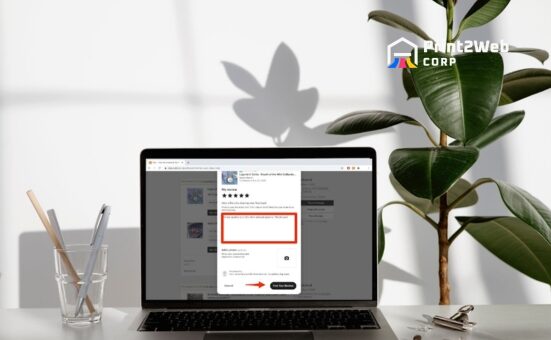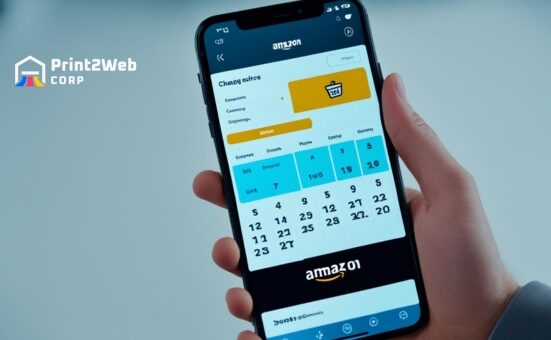Starting your journey on how to freelance as a student might seem intimidating at first, but I’m here to break it down and make it feel like a breeze. Imagine being free to work on projects you love while still keeping up with your studies. Sounds too good to be true? It’s not!
With the right approach and mindset, you can step into the world of freelancing and experience its endless opportunities. Stick around for some insider tips that will propel you towards success.
Diving into freelancing as a student is all about finding the right balance between your studies and work. Start by identifying your skills or what you enjoy doing, be it writing, graphic designing, coding, or anything else under the sun.
Then, create an appealing profile on popular freelance platforms like Upwork or Fiverr. The trick is starting small—take on projects that match your skill level and gradually build up your portfolio. Remember, every pro was once an amateur; start where you are and use what you have. Your freelancing adventure begins with one step!
What You Will Discover Here:
- Simple Steps: To launch your freelance quest
- Key Skills Identification: Find out what makes you stand out
- Networking Like a Pro: Tips on building meaningful connections
- Crafting Impressive Portfolios: Attract clients who want what you offer
- Pricing Wisdom: Charge what you deserve
Why Freelance as a Student?
Diving into the freelance arena as a student isn’t just about making some extra cash on the side. It’s a smart way to get a head start in your career, test-driving what you’ve learned in lectures in real job scenarios.

Imagine working on projects that directly relate to your studies; it’s like having a mini-internship whenever you want, tailored exactly to your interests and schedule. This isn’t just good for your bank account but also supercharges your resume with practical experience, making you stand out in future job hunts.
But it’s not all about work experience. Freelancing teaches you life lessons no textbook can. Suddenly, you’re juggling deadlines for both clients and coursework, which sounds scary but actually turns you into a time management ninja over time. You’ll learn the art of communication, negotiation, and even basic accounting without even realizing it.
Plus, there’s something incredibly rewarding about earning from your skills—it boosts confidence and pushes you to keep improving professionally. In short, freelancing as a student is like hitting the fast-forward button on both personal growth and professional development.
Also Read: eBay vs Amazon Showdown – Which Dominates for Sellers?
Exploring Freelance Opportunities for Students
Diving into the realm of freelance work offers students a unique and flexible way to gain professional experience, develop skills, and earn money while juggling their academic responsibilities.
This exploration can lead to uncovering opportunities in various fields like writing, graphic design, coding, or even tutoring, depending on the individual’s talents and interests. The key advantage of freelancing is the ability to set one’s schedule, allowing students to work around their class times and study commitments.

Moreover, engaging in freelance work helps in building an impressive portfolio that can significantly enhance a resume by demonstrating practical skills and real-world experience to future employers.
Another crucial aspect of freelancing for students is the network expansion and connection building within their chosen field. By taking on different projects, students get exposed to professionals across industries which may open doors for future full-time job opportunities post-graduation.
Not only does this improve their professional network but also boosts confidence in communicating and negotiating with clients from varied backgrounds. However, success in freelancing requires self-discipline, time management skills, and a continuous thirst for learning new things; qualities that ultimately make them better students as well as professionals.
Thus exploring freelance opportunities paves the way not just for financial independence but also contributes vastly towards personal growth and career development among students.
Getting Started: Tips for Student Freelancers
Starting as a freelancer can be exciting. It’s a great way to make money while you are still learning in school. You can work on projects that interest you and gain real-world experience at the same time. However, it’s important to begin the right way to make sure you don’t waste your time or get discouraged.
Choosing Suitable Freelance Gigs
When picking freelance jobs, think about what you like and what skills you have. Start by choosing tasks that are not too big or complex. This will help you learn without becoming overwhelmed. Look for gigs that match your school schedule so you have enough time for both your studies and work.
It’s also smart to select jobs related to your studies or future career plans. This makes the work more interesting because it feels like part of your education. Doing this can also give you a head start in building skills for your future job.
Crafting a Student-Friendly Portfolio
Creating a portfolio is like making a mini-showcase of your work.
- Start With School Projects: If you’ve done any projects at school that show off your skills, add them here.
- Include Personal Projects: Anything you’ve worked on by yourself, like websites, art, or writing pieces, can go into the portfolio.
- Add Testimonials: If friends or family have good things to say about your work (even if it was done for free), include their quotes.
- Keep It Simple: Your portfolio should be easy to look at and understand quickly.
This collection shows potential clients what you can do. Make sure it looks tidy and professional to make a strong impression.
Setting Realistic Rates
Choosing how much to charge can be tricky when starting out. Start with lower prices than more experienced freelancers but ensure they’re high enough so that the job is worth your time.
Remember, setting rates isn’t just about making money—it’s also about learning how much people value different types of work. You might start low but as you get better and faster at completing tasks, ask for more money based on the quality of what you deliver.
This method helps build up not just income but also confidence in charging what your services truly deserve as they improve over time—an essential step towards becoming successful in any freelance career path chosen.
Also Read: What is Dropshipping? Simplifying E-commerce Logistics
Finding Freelance Opportunities for Students
Engaging in freelance work can also provide valuable networking opportunities and build a portfolio that stands out to potential employers post-graduation. Here’s how students can dive into the world of freelancing:

- Identify Your Skills and Interests: Begin by assessing your strengths, skills, and areas of interest. Whether it’s writing, graphic design, programming, or social media management, understanding what you have to offer is crucial in finding the right freelance gigs.
- Use Freelance Job Platforms: Websites like Upwork, Freelancer, and Fiverr are great places to start looking for freelance work. These platforms allow you to create a profile showcasing your skills and apply for jobs that match your expertise.
- Leverage University Resources: Many universities have career centers or online job boards where companies post freelance opportunities specifically targeting students. These can be invaluable resources for finding work related to your field of study.
- Network Online and Offline: Join online forums, and social media groups related to freelancing or your specific field of interest. Offline networking through university events or local meetups can also lead to freelance opportunities.
- Create an Online Portfolio: Build a simple website or use portfolio platforms like Behance (for creatives) to showcase your previous work. A well-crafted portfolio makes it easier for potential clients to understand your capabilities and hire you.
These steps are not exhaustive but offer a foundational path toward securing rewarding freelance opportunities as a student. Remember that persistence and continuously improving your skills are key components of freelancing success.
Balancing Freelance Work with Studies
Navigating the precarious balance between freelance work and academic pursuits demands a strategic approach, punctuated by strict time management and clear prioritization. For students who venture into freelancing, it becomes imperative to delineate distinct boundaries between work and study hours, ensuring neither sphere encroaches upon the essential time allotted to the other.
Incorporating tools such as digital planners or calendar applications can streamline this process, enabling a visual representation of daily or weekly commitments. Equally crucial is setting realistic goals – both academically and professionally – to avoid overcommitment that can lead to burnout. Communication also plays a pivotal role; being transparent with clients about availability and deadlines helps manage expectations on both ends.
Furthermore, leveraging periods of lesser academic pressure to focus more intensively on freelance projects allows for better financial stability while also dedicating sufficient time to studies during peak academic periods. Through these strategies, students can not only enhance their professional portfolio but also attain academic success without compromising one for the other.
Managing Finances as a Student Freelancer
Navigating the financial waters as a student freelancer involves more than just earning from gigs; it requires strategic budgeting and financial discipline. Initially, setting up an organized system for tracking income and expenses is essential to visualize where your money is going, helping to differentiate between personal and business finances.

Creating a budget that takes into account irregular income patterns typical of freelancing can safeguard against periods of low work volume. Moreover, investing time in understanding taxes related to self-employment early on will help avoid surprises during tax season.
Additionally, adopting the habit of separating a portion of each payment for savings can provide a financial buffer for future expenses or investments in your freelancing toolkit. Managing finances astutely not only secures your current position but also paves the way for potential growth and stability in your freelancing career.
Building Your Reputation While in School
Building a strong reputation during your school years is an invaluable asset that can pave the way for future success. This endeavor goes beyond academic achievements and seeps into the realm of interpersonal relationships and extracurricular engagements. It’s about consistently demonstrating integrity, respect, and responsibility in every interaction.
Engage actively in class discussions, contribute positively to group projects, and show genuine interest and support for your peers’ endeavors. Moreover, involvement in school activities, be it sports teams, clubs, or volunteer work, showcases leadership skills and team spirit.
Cultivating a network of positive relationships with educators and peers alike can provide not only mentorship opportunities but also potential references for college applications or job prospects in the future. Remember, your actions and attitudes leave lasting impressions; make sure they reflect the best version of yourself.
Also Read: Side Hustles That Pay Weekly: 20 Fun & Easy Options
FAQs
Is freelancing a gig economy?
Yes, freelancing is a big part of the gig economy. It’s where people do short-term work or ‘gigs’ instead of regular, full-time jobs.
What are the 4 things you need to thrive in the gig economy?
To do well in the gig economy, you need top-notch skills, good time management, a strong network of contacts, and flexibility to adapt to different projects.
How do I get a gig as a freelancer?
To get a gig on Freelancer, create an account, set up your profile with skills and experience, search for jobs that fit you, and then bid on them with your best offer.
Is Upwork a gig economy?
Yes, Upwork is part of the gig economy. It connects freelancers with clients looking for specific short-term tasks or projects.
Also Read: Handyman Business Startup Guide: Kick-Start Your Dream!
Conclusion
Embarking on a freelancing journey as a student can seem daunting. But with the right guidance and determination, it’s possible to navigate the complex gig economy successfully. Freelancing provides numerous opportunities to gain experience, earn income, and acquire expansive skill sets.
However, it is vital to remain proactive about potential challenges like work inconsistency and financial management. The core takeaway from this guide is that successful freelancing necessitates strategic planning.
From choosing your niche, building networks, and curating an attractive portfolio to determining competitive rates – every step counts in solidifying your presence in the freelance world.







